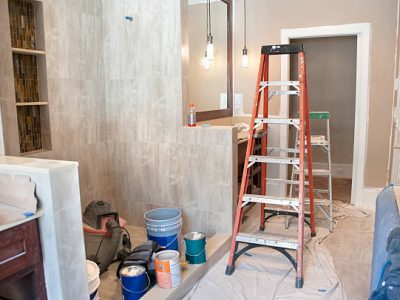If you’re renovating your home but have found that you lack the funds to finance such a project, don’t fret – there are myriad ways to come up with the money required. We’ll go through six of the best options available and provide tips on how to make each one work for you. From loans and lines of credit to other types of financing, this post will cover it all!

Financing your next renovation projects – 6 ways to do so
Our homes are often our biggest asset and investment, so it’s natural to want to protect and improve their value. But not all of us have the savings required to finance a home renovation project outright. If you find yourself in this position, don’t worry – there are plenty of options available to help you finance your project. Whether you are looking for a hard money loan in Connecticut or you want to sell some of your items in Austin, Texas, we have got you covered. When you are ready to get started on your next home improvement project, keep the following six financing options in mind.
1. Home Equity Lines of Credit (HELOCs)
A HELOC is a loan that is secured by your home equity, which is the portion of your home’s value that you own outright. Because it is secured by your home, a HELOC typically comes with a lower interest rate than other types of loans. To qualify for a HELOC, you’ll need to have at least 20% equity in your home. Moreover, your home must have enough value to support the loan – this is typically determined by an appraisal. If you’re planning a relatively small renovation project, a HELOC can be a great option as it offers flexibility in terms of both repayment and how you use the funds.
2. Home Equity Loans
Another option for those with home equity is to take out a home equity loan. A home equity loan is a lump sum loan that is typically taken out at a fixed interest rate. Like a HELOC, a home equity loan is secured by your home equity and usually comes with a lower interest rate than other types of loans. Most home equity loans have a repayment period of five to 15 years. In addition to that, home equity loans typically have closing costs, which can add to the overall cost of the loan.
3. Personal Loans
Personal loans are an option for those who don’t have home equity or don’t want to use their home equity to finance their renovation project. Personal loans typically come with a fixed interest rate and can be used for a variety of purposes, including home renovations. To qualify for a personal loan, you’ll need to have good to excellent credit. Most personal loans will have a repayment period of three to seven years. During this period, you’ll make fixed monthly payments. One thing to keep in mind with personal loans is that they may have origination fees, which can add to the overall cost of the loan.
4. Cash-Out Refinance
A cash-out refinance is a type of mortgage refinancing where you take out a new loan that is larger than your current mortgage and use the extra funds to pay for your renovation project. A cash-out refinance typically comes with a higher interest rate than your current mortgage, but it may still be lower than other types of loans. To qualify for a cash-out refinance, you’ll need to have good to excellent credit and enough equity in your home.
5. Credit Cards
For smaller renovation projects, you may be able to finance your project with a credit card. While this can be a convenient option, it’s important to keep in mind that credit cards typically have high-interest rates. If you decide to finance your renovation project with a credit card, be sure to make your payments on time and in full to avoid incurring any costly interest charges. Credit cards can also be a good option for those who don’t have good credit and can’t qualify for other types of loans.

6. Personal Savings
If you have personal savings available, using your own money to finance your renovation project can be a great option. Not only will you avoid paying any interest charges, but you’ll also have complete control over your budget. If you’re planning a large renovation project, you may need to supplement your personal savings with another financing option.
In conclusion, there are a variety of financing options available to help you fund your next home renovation project. To choose the best option for you, consider the size of your project, your credit score, and the interest rates available.

















